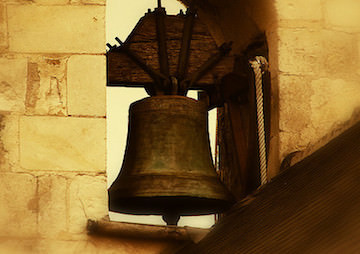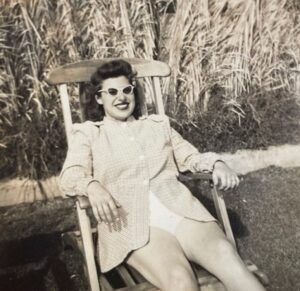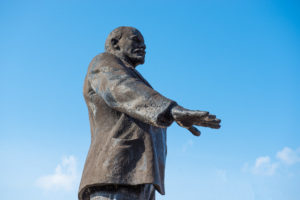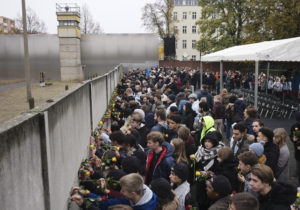Sen. John McCain Salutes an American Communist
In a touching reflection in The New York Times, McCain paid tribute to the recently deceased Delmer Berg, an American Communist. Like McCain’s literary idol, Ernest Hemingway, Berg fought in Spain "for love” during the Spanish Civil War, the conservative senator wrote. Hans Splinter / CC BY-ND 2.0
Hans Splinter / CC BY-ND 2.0
In a touching reflection in The New York Times, Sen. John McCain paid tribute to the recently deceased Delmer Berg, an American Communist. Like McCain’s literary idol, Ernest Hemingway, Berg fought in Spain “for love” during the Spanish Civil War, the conservative senator said in the essay.
“Delmer Berg wasn’t a celebrity,” McCain wrote Thursday. “He wasn’t someone with great wealth or influence. He had never held public office. He was a Californian. He worked as a farmhand and stonemason. He did some union organizing. He was vice president of his local N.A.A.C.P. chapter. He protested against the Vietnam War and nuclear weapons. He joined the United States Communist Party in 1943, and, according to The Times, he remained an ‘unreconstructed Communist’ for the rest of his life. He was 100. He was also the last known living veteran of the Abraham Lincoln Brigade.”
McCain continues:
Not many Americans younger than 70 know much about the Lincoln Brigade. It became the designation given to the nearly 3,000 mostly American volunteers who fought in the Spanish Civil War in 1937 and 1938. They fought on the Republican side, in defense of the democratically elected leftist government of Spain, and against the Nationalists, the military rebels led by Gen. Francisco Franco.
You might consider them romantics, fighting in a doomed cause for something greater than their self-interest. And even though men like Mr. Berg would identify with a cause, Communism, that inflicted far more misery than it ever alleviated — and rendered human dignity subservient to the state — I have always harbored admiration for their courage and sacrifice in Spain.
I have felt that way since I was boy of 12, reading Hemingway’s “For Whom the Bell Tolls” in my father’s study. It is my favorite novel, and its hero, Robert Jordan, the Midwestern teacher who fought and died in Spain, became my favorite literary hero. In the novel, Jordan had begun to see the cause as futile. He was cynical about its leadership, and distrustful of the Soviet cadres who tried to suborn it.
But in the final scene of the book, a wounded Jordan chooses to die to save the poor Spanish souls he fought beside and for. And Jordan’s cause wasn’t a clash of ideologies any longer, but a noble sacrifice for love.
“The world is a fine place and worth the fighting for,” Jordan thinks as he waits to die, “and I hate very much to leave it.” But he did leave it. Willingly.
Mr. Berg went to Spain when he was a very young man. He fought in some of the biggest and most consequential battles of the war. He sustained wounds. He watched friends die. He knew he had ransomed his life to a lost cause, for a people who were strangers to him, but to whom he felt an obligation, and he did not quit on them. Then he came home, started a cement and stonemasonry business and fought for the things he believed in for the rest of his long life.
I don’t believe in most of the things that Mr. Berg did, except this. I believe, as Donne wrote, “no man is an island, entire of itself.” He is “part of the main.” And I believe “any man’s death diminishes me, because I am involved in mankind.”
So was Mr. Berg. He didn’t need to know for whom the bell tolls. He knew it tolled for him. And I salute him. Rest in peace.
Read McCain’s tribute in full here.
—Posted by Alexander Reed Kelly.
Your support matters…Independent journalism is under threat and overshadowed by heavily funded mainstream media.
You can help level the playing field. Become a member.
Your tax-deductible contribution keeps us digging beneath the headlines to give you thought-provoking, investigative reporting and analysis that unearths what's really happening- without compromise.
Give today to support our courageous, independent journalists.






You need to be a supporter to comment.
There are currently no responses to this article.
Be the first to respond.